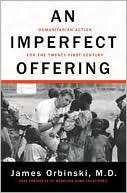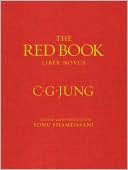Imperfect Offering: Humanitarian Action for the Twenty-first Century
Search in google:
From one of the world’s greatest humanitarian activists comes a searing personal memoir that is also an urgent call to confront suffering in all its many forms.Having seen things we hope never to see, confronted suffering and dispassion and evil we hope never to encounter, and faced deep personal torment, James Orbinski still believes in “the good we can be if we so choose.” His chosen medium for revealing this is stories from his own experience—a doctor’s indelible testimony from the front lines in Peru, Somalia, Afghanistan, Rwanda, Zaire—embodied in which are warnings, hope, and lessons in how we can inject humanitarian activity into our lives. Being political, he has discovered, is not only reserved for politicians; admitting imperfection is essential to compassion. With an eye for detail like that of the finest journalist and the empathy of the most committed doctor, Orbinski’s powerful voice is matched by the urgency of his message. At a time of great political and moral uncertainty, An Imperfect Offering is invaluable reading for anyone who wants to make a difference. Excerpt:“This book is a series of stories in which I ask, again and again, ‘how to be in relation to the suffering of others.’ It is a personal narrative about the political journey I have taken over the last twenty years as a humanitarian doctor, as a citizen, and as a man. It is about the mutuality that can exist between us, if we so choose. I have come to see humanitarianism not as separate from politics, but in relation to it, and as a challenge to political choices that too often kill or allow others to be killed. At its best, politics is an imperfect human project. It is at its worst when we delude ourselves into thinking it can be perfect. Speaking is the first political act. It is the first act of liberty, and it always implicitly involves another. In speaking, one inherently recognizes that “I am and I am not alone.” In this space lies our humanity.” (a composite from chapter 1) Publishers Weekly In this captivating look at humanitarian intervention in the 20th century, Orbinski, former head of the NGO Médecins Sans Frontières (Doctors Without Borders), uses stories from his decades of service with the group to examine "how to be in relation with the suffering of others." The author describes his time on the front lines of suffering in Russia, Somalia and Afghanistan. When Orbinski recounts his second term in Rwanda during the 1994 genocide, the book reaches an emotional peak: it was his "undoing," and struggling with the horror he has seen, he drifts into a "netherworld of confusion," fighting to regain his "footing as a man, as a doctor and as a putative humanitarian." His ensuing reflections on humanitarianism are as riveting as his personal thoughts, which include diary entries, recollections and correspondence with friends in the humanitarian and diplomatic corps. The book manages to be both personal enough to construe the human toll of political and social disasters without falling into the trap of maudlin, patronizing depictions of human suffering. Orbinski, who accepted the Nobel Peace Prize for Médecins Sans Frontières in 1999 does credit to his organization and his humanitarian credo. (Oct.)Copyright © Reed Business Information, a division of Reed Elsevier Inc. All rights reserved.








